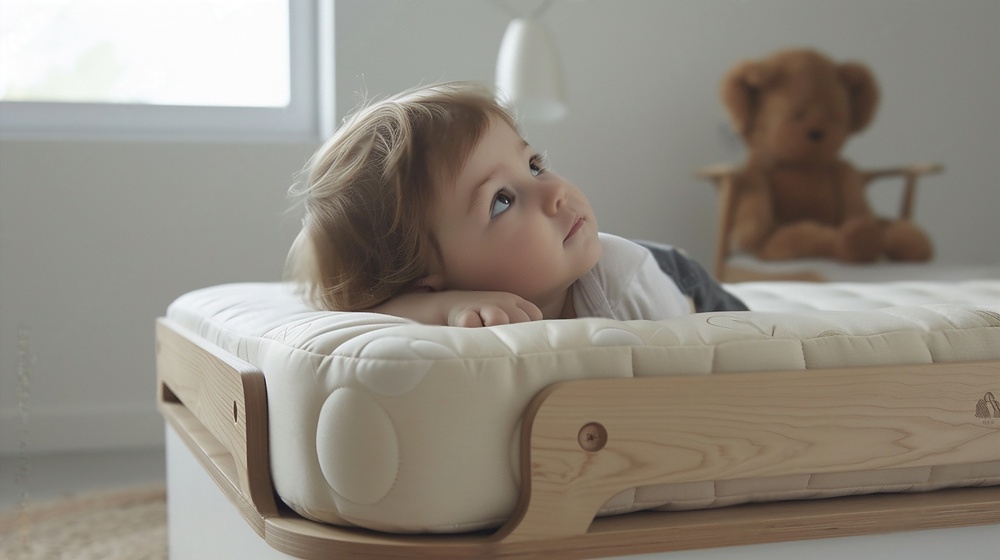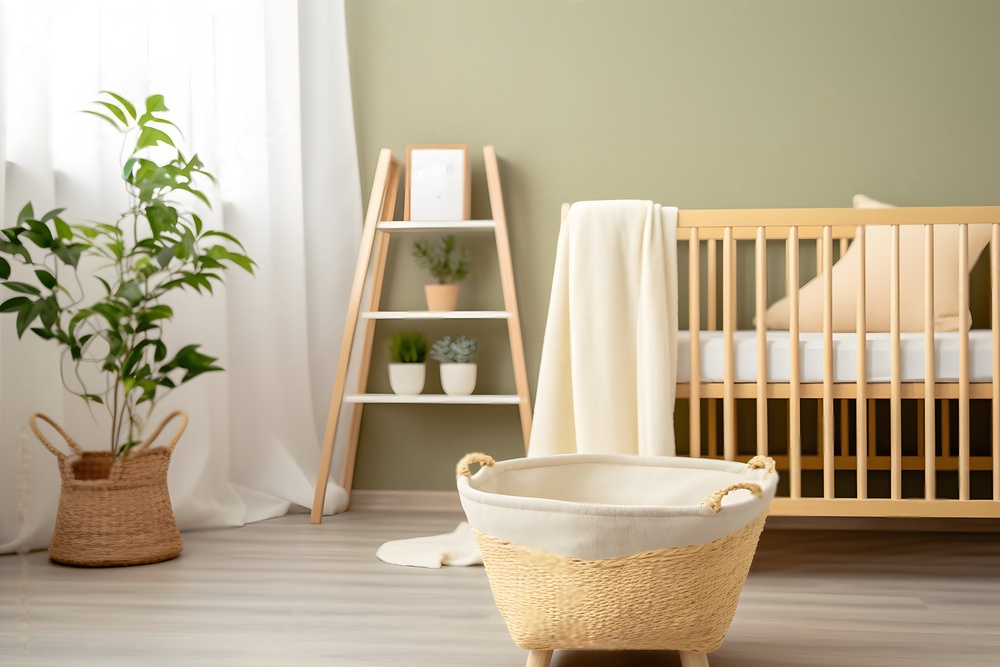In today’s world, where environmental consciousness and health awareness are increasingly becoming priorities, many parents are turning to organic options, even when it comes to their children’s bedding. The importance of providing a safe and healthy sleeping environment for kids cannot be overstated. This article explores why organic bedding is an excellent choice for your little ones and what factors to consider when making this important decision.
Importance of Choosing the Right Bedding for Kids:
Selecting the right bedding for children goes beyond aesthetics. It directly impacts their health and well-being. Children spend a significant portion of their time sleeping, and the materials they are exposed to during this time can have long-lasting effects on their health. Conventional bedding often contains synthetic materials and chemicals that may be harmful, especially for young, developing bodies.
Understanding Organic Bedding:
What is Organic Bedding?
Organic bedding refers to bed linens, pillows, and mattresses made from natural materials that are grown without the use of synthetic pesticides, fertilizers, or other harmful chemicals. These materials are often sourced from organic cotton, wool, or bamboo, ensuring that they are free from toxins and allergens.
Benefits of Organic Bedding for Kids:
Organic bedding offers numerous benefits for children. Firstly, it provides a safer and healthier sleeping environment by reducing exposure to harmful chemicals commonly found in conventional bedding. Additionally, organic materials tend to be more breathable, regulating temperature and moisture levels to ensure a comfortable night’s sleep. Moreover, organic bedding is often hypoallergenic, making it suitable for children with sensitivities or allergies.
Factors to Consider When Choosing Organic Bedding:
Material and Fabric Quality:
When selecting organic bedding for your kids, pay attention to the quality of materials and fabrics used. Opt for organic cotton, wool, or bamboo fabrics known for their softness, durability, and breathability.
Certifications and Standards:
Look for organic bedding that has been certified by reputable organizations such as GOTS (Global Organic Textile Standard) or OEKO-TEX Standard 100. These certifications ensure that the products meet stringent environmental and social criteria, guaranteeing their authenticity and purity.
Hypoallergenic Properties:
For children with allergies or sensitive skin, choosing organic bedding with hypoallergenic properties can help alleviate symptoms and provide a more comfortable sleep experience.
Comparison: Organic vs. Conventional Bedding:
When comparing organic and conventional bedding, the primary difference lies in the materials and production methods used. Conventional bedding often contains synthetic materials treated with chemicals, whereas organic bedding is made from natural, non-toxic materials.
Environmental Impact of Organic Bedding:
Opting for organic bedding also benefits the environment. Organic farming practices promote soil health, biodiversity, and water conservation, minimizing the ecological footprint of textile production.
Comfort and Health Benefits for Kids:
Organic bedding ensures a cozy and healthy sleep environment for children, promoting better sleep quality and overall well-being. The breathable, hypoallergenic nature of organic materials reduces the risk of skin irritation and respiratory issues, allowing kids to rest peacefully.
Maintaining Organic Bedding:
To prolong the lifespan of organic bedding, follow proper cleaning and care techniques. Wash bedding regularly with mild, eco-friendly detergents, and avoid harsh chemicals or bleach. Air drying or using a low-heat setting when machine drying helps preserve the integrity of the materials.
Common Misconceptions about Organic Bedding:
Despite its benefits, there are some common misconceptions about organic bedding, such as it being too expensive or difficult to find. However, with increasing demand and availability, organic bedding options are becoming more accessible and competitively priced.
Addressing Concerns: Cost vs. Value:
While organic bedding may have a slightly higher upfront cost compared to conventional options, it offers long-term value in terms of durability, comfort, and health benefits. Investing in organic bedding is an investment in your child’s health and well-being.
Customer Reviews and Testimonials:
Many parents who have made the switch to organic bedding for their kids rave about the noticeable improvements in sleep quality, comfort, and overall health. Positive customer reviews and testimonials serve as valuable endorsements of the benefits of organic bedding.
Conclusion:
Choosing organic bedding for your kids is a decision that prioritizes their health, comfort, and the environment. By opting for natural, non-toxic materials, you can create a safe and nurturing sleep environment where your children can thrive.
FAQs:
- What are the benefits of organic bedding for children?
Organic bedding offers a safer and healthier sleep environment by reducing exposure to harmful chemicals, promoting better sleep quality, and minimizing allergy triggers. - Is organic bedding more expensive than conventional bedding?
While organic bedding may have a slightly higher upfront cost, it offers long-term value in terms of durability, comfort, and health benefits. - How often should organic bedding be replaced?
Organic bedding, like any other bedding, should be replaced periodically to maintain hygiene and comfort. A good rule of thumb is to replace bedding every 2-3 years or as needed. - Are there any specific certifications to look for when buying organic bedding?
Look for certifications such as GOTS (Global Organic Textile Standard) or OEKO-TEX Standard 100, which ensure that the bedding meets strict environmental and social criteria. - Can organic bedding help with allergies?
Yes, organic bedding is often hypoallergenic and free from chemicals that can trigger allergies or sensitivities, making it a suitable choice for children with allergies or sensitive skin.



